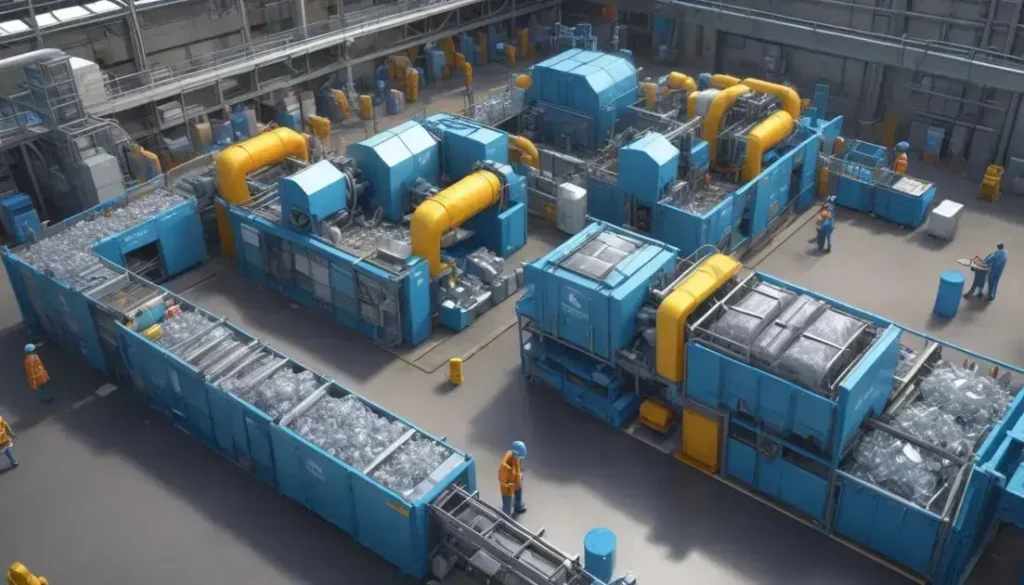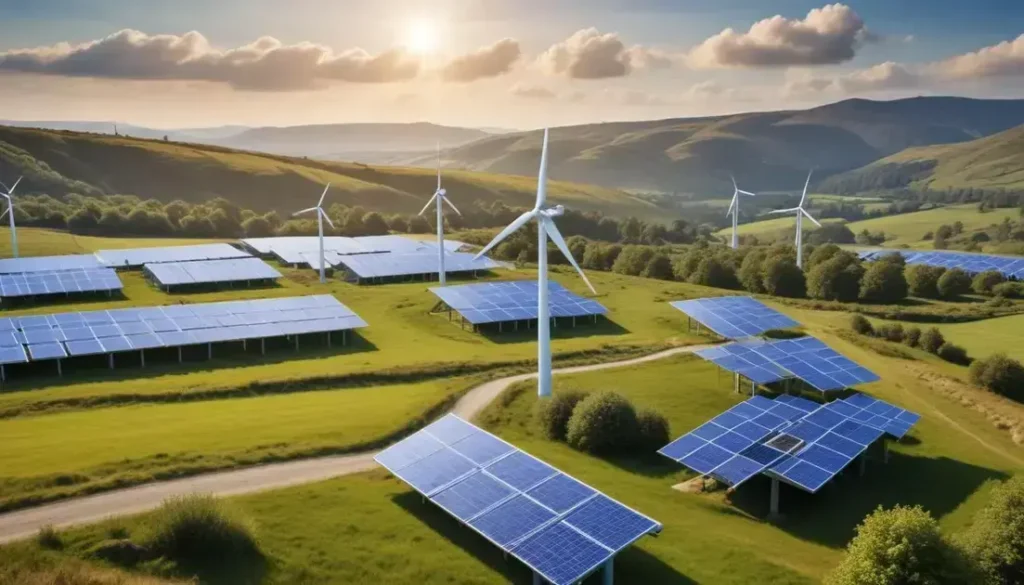Decarbonization involves reducing carbon emissions through sustainable practices such as investing in renewable energy, enhancing energy efficiency, and adopting sustainable transportation solutions, essential for combating climate change.
Decarbonization efforts are gaining momentum in Australia, significantly impacting various sectors. In this article, we’ll explore how recent funding announcements affect businesses in key industries.
Overview of Climate Tech Partners’ funding
Climate Tech Partners, a pivotal player in the realm of sustainable investments, has recently announced substantial funding aimed at advancing decarbonization technologies. This funding is particularly crucial as it targets innovative solutions that can reduce carbon emissions across various industries.
With a keen focus on renewable energy sources, this initiative supports projects that leverage wind, solar, and other sustainable methods to replace traditional fossil fuels. By mobilizing financial resources, Climate Tech Partners is setting the stage for transformative changes, driving both ecological and economic benefits.
The funding will also streamline the development of technologies that enhance energy efficiency in manufacturing, transportation, and agriculture. By integrating advanced solutions, businesses can significantly decrease their carbon footprints while maintaining productivity.
Moreover, this initiative places a strong emphasis on collaborative efforts among startups, governmental bodies, and established enterprises. Such partnerships are essential for fostering innovation and ensuring that new technologies are viable in real-world applications.
As the investment landscape continues to evolve, Climate Tech Partners is not only addressing the urgent need for sustainability but also creating new opportunities for Australian businesses and contributing to a greener future.
Focus areas for investment in decarbonization
Investment in decarbonization focuses on several key areas that are crucial for achieving sustainable development. These include renewable energy, energy efficiency, and sustainable transportation solutions.
Firstly, renewable energy technologies, such as solar and wind power, are at the forefront. They offer clean alternatives to fossil fuels, significantly reducing greenhouse gas emissions. Investments in these technologies are essential for transitioning to a low-carbon economy.
Secondly, energy efficiency plays a vital role in decarbonization strategies. Upgrading existing infrastructure and implementing energy-efficient practices can drastically reduce energy consumption in industries, homes, and commercial spaces. This not only minimizes carbon footprints but also lowers operational costs.
Thirdly, the development of sustainable transportation is critical. Electric vehicles (EVs) and public transportation systems that utilise renewable energy sources are gaining traction. Alongside this, investing in charging infrastructure is crucial to support the transition to electric mobility.
Finally, enhancing carbon capture and storage technologies is essential for mitigating the impact of carbon emissions already released. These solutions allow for the ongoing use of fossil fuels while reducing their environmental impact.
Impact of Australian government policies on climate tech
The impact of Australian government policies on climate technology is significant, shaping the landscape for innovation and investment. Current policies are geared towards supporting a transition to a cleaner economy, which is crucial for meeting national and international climate targets.
One of the primary initiatives includes incentives for businesses that invest in renewable energy projects. These financial supports not only encourage the adoption of solar and wind technologies but also promote research and development in emerging technologies.
Additionally, the government is actively promoting carbon pricing mechanisms. By putting a price on carbon emissions, businesses are incentivised to reduce their carbon footprints. This policy drives investments in technologies that are not only sustainable but also economically viable.
Moreover, the regulatory frameworks established by the government facilitate the growth of climate tech startups. These frameworks provide clear guidelines and support systems, enabling new companies to navigate the market more effectively.
Lastly, collaborations between government bodies and private sectors have proven beneficial. Such partnerships foster innovation and ensure that technologies developed are practical and scalable, aiding Australia in its journey towards a sustainable future.
Challenges in climate tech fundraising
Fundraising in the climate tech sector faces several challenges that can hinder innovation and growth. One major obstacle is the lack of investor confidence in emerging technologies. Many investors remain hesitant due to the perceived risks associated with new and untested solutions.
Additionally, the climate tech landscape is often fragmented, which complicates fundraising efforts. Startups may struggle to find suitable investors who understand their specific technologies and market potential. This can lead to missed opportunities and stalled projects.
Another significant challenge is the competition for funding. With numerous startups vying for attention, distinguishing one’s solution from others becomes crucial. Without a strong unique selling proposition, securing financial backing can be exceptionally difficult.
Furthermore, regulatory hurdles can deter investors. Uncertainty regarding government policies or changes in regulations can create a volatile investment environment, making investors wary of committing funds to climate tech ventures.
Finally, the need for substantial initial capital to develop advanced technologies is a barrier. Many innovative solutions require significant investment before they can yield a return, which can be a tough sell for cautious investors.
Future trends in decarbonization investment
As businesses and governments worldwide prioritise sustainability, several future trends are emerging in decarbonization investment. One notable trend is the increasing focus on technological innovation. Investors are looking for cutting-edge solutions that enhance energy efficiency and lower carbon emissions, particularly in sectors like energy, transportation, and agriculture.
Another trend is the rise of sustainable finance. More financial institutions are integrating environmental, social, and governance (ESG) criteria into their investment decisions. This shift attracts capital towards projects that demonstrate a commitment to sustainability and long-term viability.
Furthermore, the expansion of carbon markets is becoming a critical aspect of decarbonization strategies. Governments and companies are investing in carbon credits and offset initiatives that create financial incentives for reducing emissions. This trend encourages a collaborative approach to climate action across industries.
Additionally, the demand for transparent and accountable supply chains is increasing. Companies are recognising the importance of showing their sustainability commitments, leading to investments in technologies that enhance traceability and reduce risks associated with carbon emissions.
Overall, these trends indicate a shift toward a holistic approach to decarbonization investment, focusing not just on immediate financial returns but also on creating a sustainable future.
In Conclusion: Embracing Decarbonization for a Sustainable Future
The journey towards decarbonization is not just a trend but a necessity for our planet’s health. As we explore innovative technologies and sustainable practices, it becomes clear that investment in decarbonization can drive significant change across various sectors.
By focusing on renewable energy, energy efficiency, and sustainable transportation, businesses can create a competitive edge while contributing to a greener world. Furthermore, understanding the challenges and future trends in climate tech funding is essential for fostering robust investments.
Every step taken towards reducing carbon emissions counts, and collaboration among governments, industries, and investors will be crucial in this fight. Let us embrace these opportunities and work together for a more sustainable future.
Frequently Asked Questions
What is decarbonization and why is it important?
Decarbonization refers to the process of reducing carbon emissions to combat climate change. It is crucial for creating a sustainable environment and mitigating the impacts of global warming.
How can businesses invest in decarbonization?
Businesses can invest in decarbonization by adopting renewable energy sources, improving energy efficiency, and developing sustainable transportation options.
What are some challenges in climate tech fundraising?
Challenges include a lack of investor confidence, fragmentation in the market, competition for funds, and regulatory hurdles.
What trends are shaping the future of decarbonization investment?
Key trends include increasing technological innovation, the rise of sustainable finance, expanding carbon markets, and the demand for transparent supply chains.
How do government policies impact climate tech?
Government policies can support climate tech through financial incentives for renewable energy, regulatory frameworks that foster innovation, and carbon pricing mechanisms that encourage emission reductions.
What role do partnerships play in decarbonization efforts?
Collaborations between government, businesses, and investors are vital for driving innovation and ensuring effective implementation of sustainable technologies.


